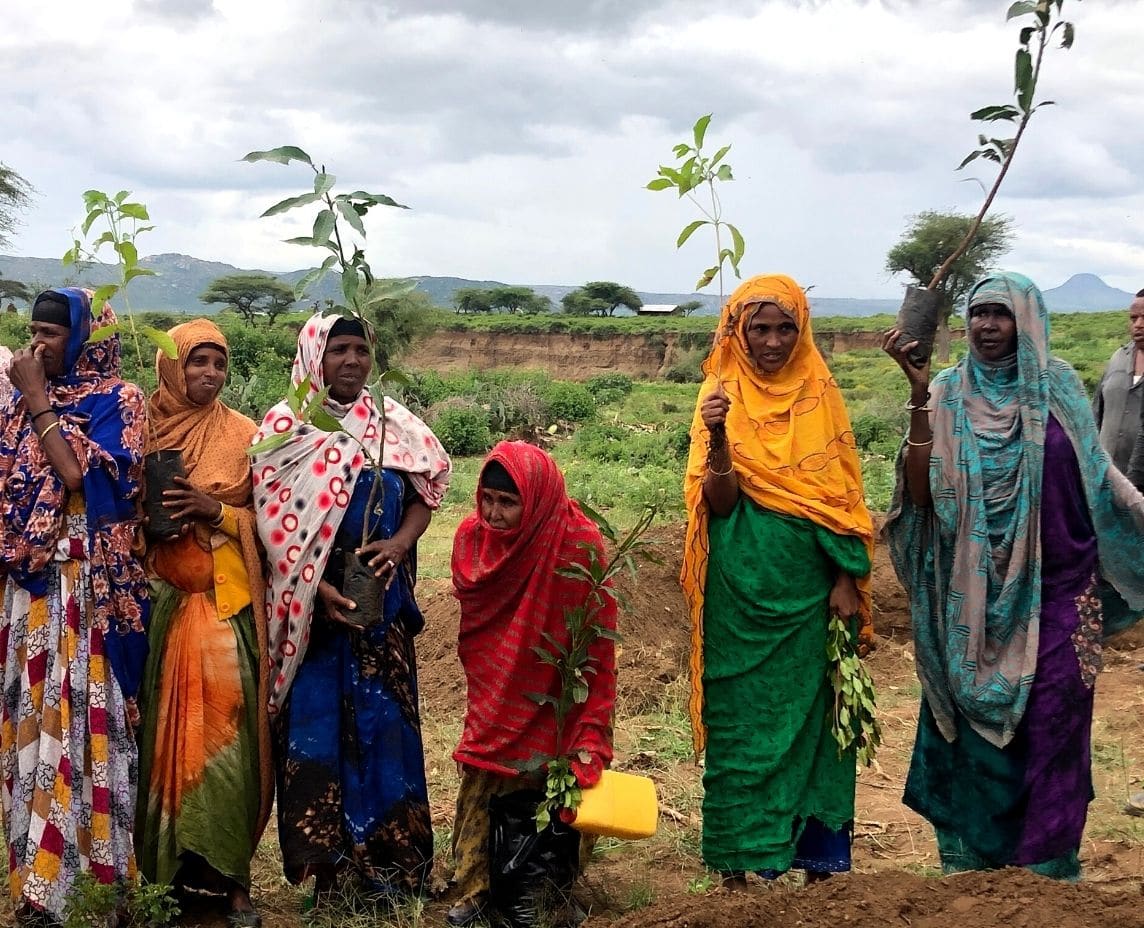The effects of climate change and natural disasters, as well as internal conflicts, limit the rural population’s access to resources and capacities to cope with recurrent famines.
Through this Agreement, Promoción Social, in consortium with the NGO Rescate and two local partners ECC-SDCOH (Ethiopian Catholic Church – Social Development and Cooperation Office of Harar) and Havoyoco, seeks to contribute to poverty reduction in 5 Woredas in the Fafan Zone of the Somali region of Ethiopia, and in a total of 17 kebeles, by strengthening rights holders’ access to resilient and sustainable livelihoods and reducing gender inequalities.
The planned activities aim to ensure, on the one hand, the availability of productive resources and their sustainable management, through the provision of infrastructures for the collection, distribution (irrigation) and storage of rainwater and groundwater for agricultural use; training in the use of efficient and sustainable agricultural production techniques (intercropping, agroforestry, vermiculture), and the provision of quality inputs (improved seeds, biofertilizers) and adapted agricultural machinery; and the introduction of animal species, improvement of animal health, conservation of pastures and forage banks, to increase livestock and dairy production.
Another aspect of the agreement is the sustainable recovery of the local environment from the impacts of climate change and natural disasters by reducing erosion through physical, biological and mechanical measures; the recovery of degraded areas through reforestation campaigns using native species and other techniques; and increasing biodiversity by reintroducing adapted species through the creation of a nursery and a seed bank.
In addition, work is being done to strengthen the quality of the community fabric, improving its management capabilities and greater sensitivity to environmental issues, by strengthening and/or creating community management committees; improving management capabilities for cooperatives and committees, and facilitating resources; exchanging experiences among woredas to share lessons learned; and raising awareness of sustainable environmental management.
Finally, among the activities are measures to ensure the training and access of women to productive resources, and their incorporation into local committees and cooperatives, to achieve greater participation in decision-making. These actions will be supported by gender sensitization sessions in the communities.





